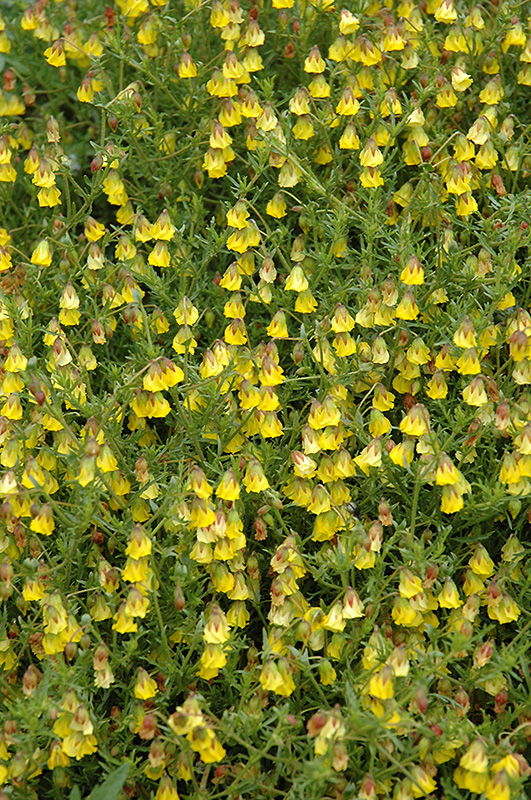Height: 18 inches
Spread: 18 inches
Sunlight:
![]()
Hardiness Zone: (annual)
Description:
A very fragrant sub-shrub covered in lovely yellow nodding bell flowers in late winter; prune plant after flowering to retain its bushy shape; a great choice for hanging baskets and containers or massed along walkways where the scent can be appreciated
Ornamental Features
Honeybells is covered in stunning fragrant nodding yellow bell-shaped flowers along the branches from late winter to early spring, which emerge from distinctive plum purple flower buds. Its attractive twisted ferny leaves remain dark green in colour throughout the year.
Landscape Attributes
Honeybells is a multi-stemmed annual with a ground-hugging habit of growth. Its medium texture blends into the garden, but can always be balanced by a couple of finer or coarser plants for an effective composition.
This is a relatively low maintenance plant, and should only be pruned after flowering to avoid removing any of the current season's flowers. It has no significant negative characteristics.
Honeybells is recommended for the following landscape applications;
- Mass Planting
- General Garden Use
- Groundcover
- Container Planting
Planting & Growing
Honeybells will grow to be about 18 inches tall at maturity, with a spread of 18 inches. Its foliage tends to remain dense right to the ground, not requiring facer plants in front. Although it's not a true annual, this plant can be expected to behave as an annual in our climate if left outdoors over the winter, usually needing replacement the following year. As such, gardeners should take into consideration that it will perform differently than it would in its native habitat.
This plant should only be grown in full sunlight. It prefers to grow in average to moist conditions, and shouldn't be allowed to dry out. It is not particular as to soil type or pH. It is somewhat tolerant of urban pollution. This species is not originally from North America.
Honeybells is a fine choice for the garden, but it is also a good selection for planting in outdoor pots and containers. Because of its spreading habit of growth, it is ideally suited for use as a 'spiller' in the 'spiller-thriller-filler' container combination; plant it near the edges where it can spill gracefully over the pot. Note that when growing plants in outdoor containers and baskets, they may require more frequent waterings than they would in the yard or garden.

